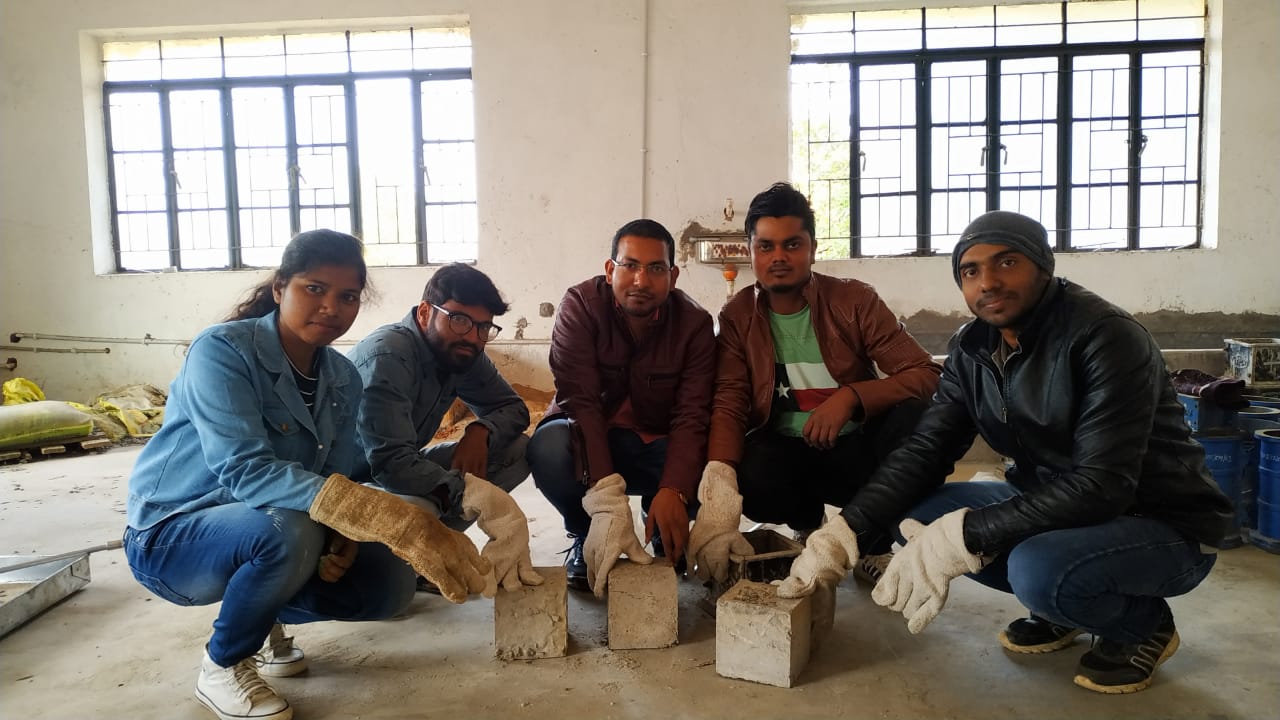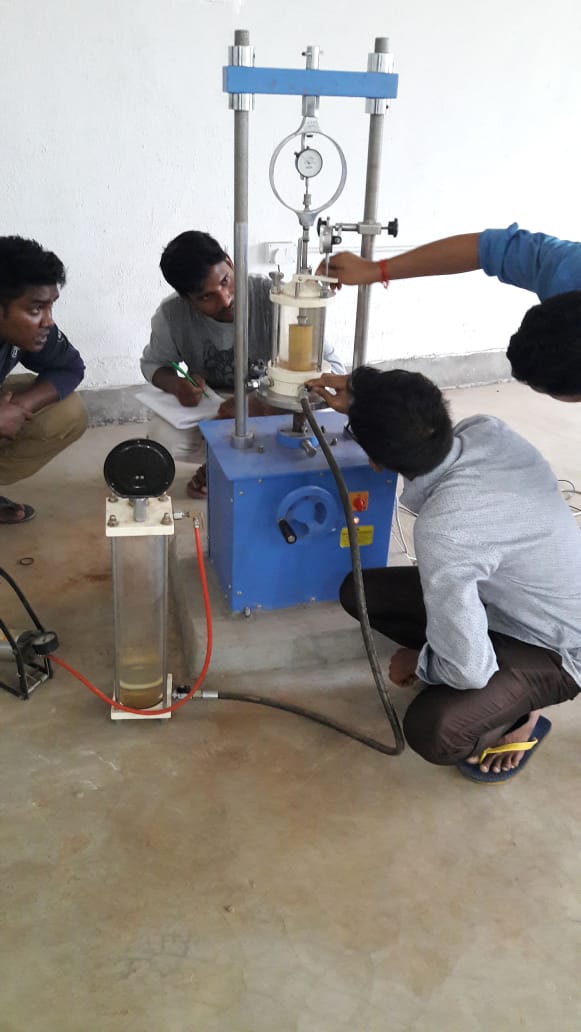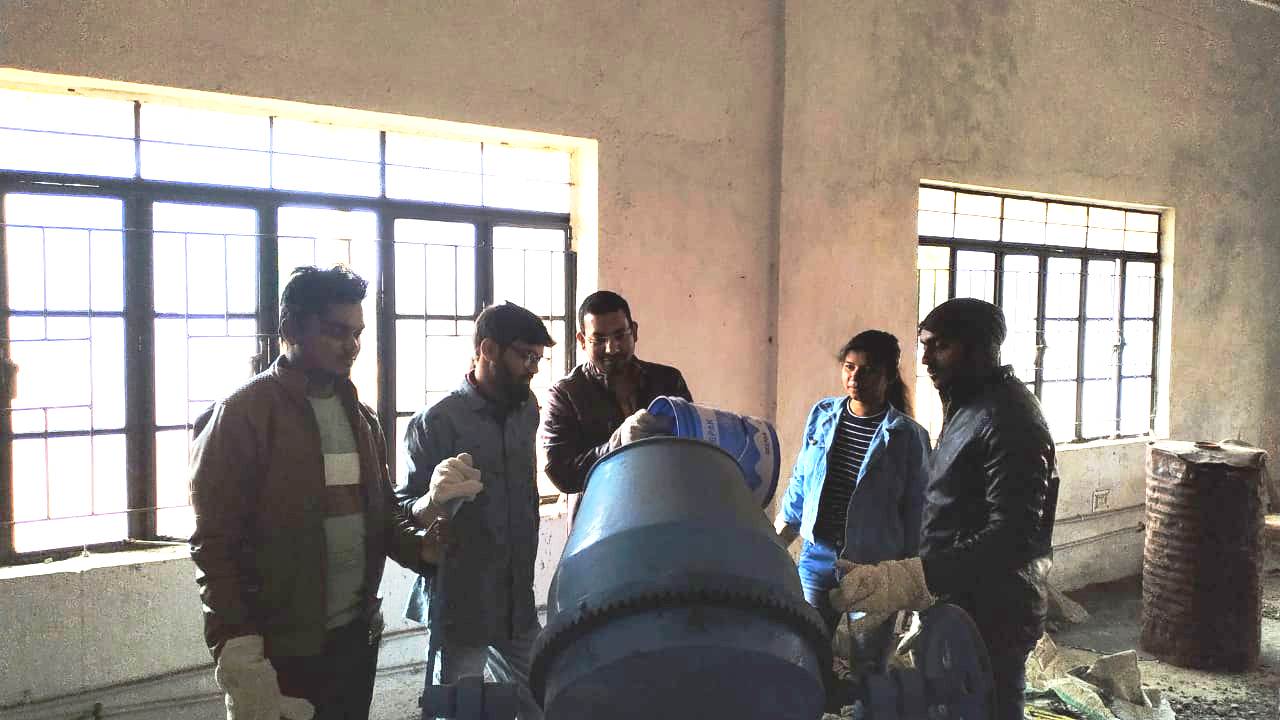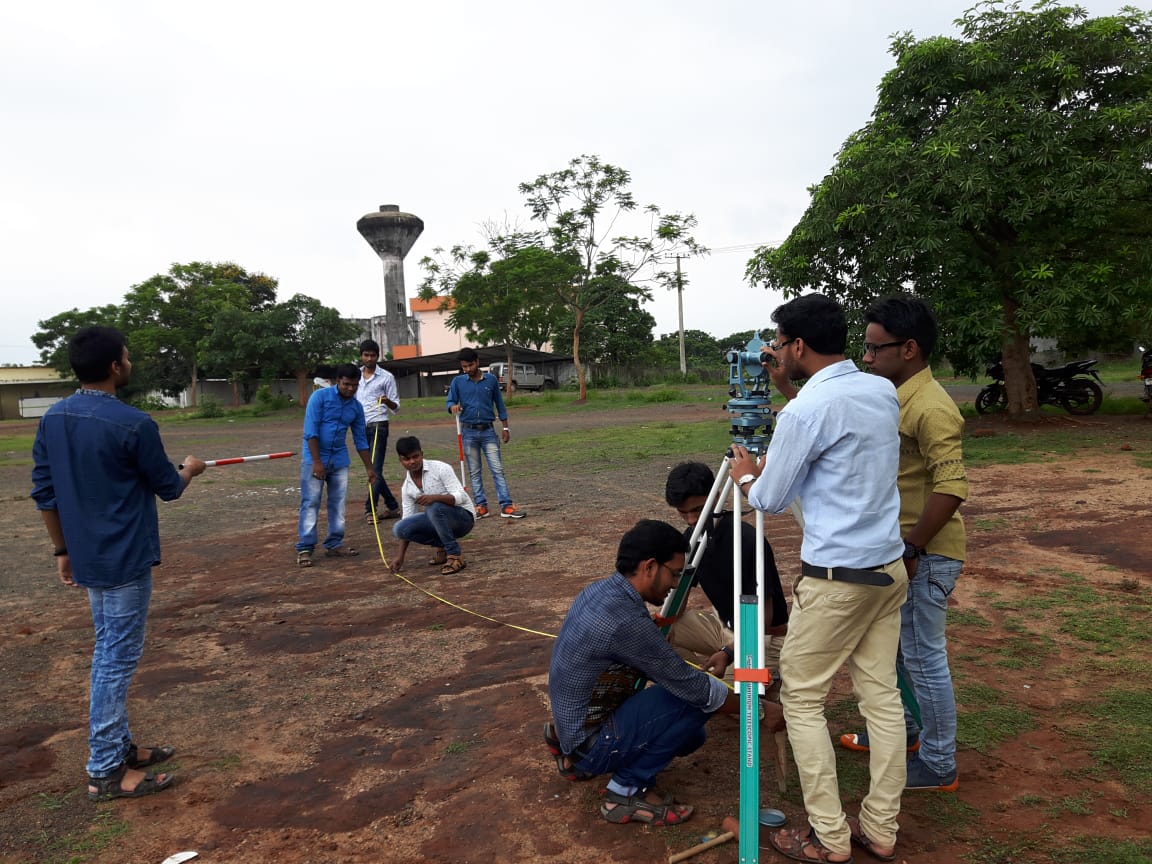- +91- 9007600888
- coordinatortigjh@gmail.com
Degree in Civil Engineering
Civil Engineering involves planning, designing and executing structural works. The profession deals with a wide variety of engineering tasks including designing, supervision and construction activities of public works like roads, bridges, tunnels, buildings, airports, dams, water works, sewerage systems, ports, etc. and offers a multitude of challenging career opportunities. The course curriculum includes the study of all the basic engineering sciences and is designed to introduce students to a variety of problems encountered by civil engineers such as structures, foundation, construction, hydraulics and environmental engineering, sewerage works management and costing, transportation engineering, irrigation engineering, etc.
Number of approved seats: 120
Duration: 4 Years
Number of Laboratories: 7
Department tour - 
.jpg)
.jpg)
.jpg)
.jpg)

.jpeg)



.jpeg)
![]() This department is Recognized by "The Institution of Engineers (India)".
This department is Recognized by "The Institution of Engineers (India)".
![]() Departmental Review Committee (DRC)
Departmental Review Committee (DRC)
|
VISION To serve the nation and society by providing skilled and well-developed civil engineers through
excellence in technical education.
|
|
MISSION M1:To impart value based quality education in civil engineering and serve by producing excellent engineers, innovators and entrepreneurs for the growth of the industry and the society. M2:To develop sense of competitiveness, self-confidence, sincerity, punctuality and ethical values among students. M3:To promote students in renowned industry and academic institution for quality training and project work. |
|
PEO PE01: Graduates will able to apply fundamental principles of science, mathematics and engineering using modem tools to solve the societal and environmental problems. PE02: Graduates are able to use their practical, field survey, computer and analytic skills to build industry ready engineers to solve multi-disciplinary sustainable projects. PE03: Graduates will be able to give solution of complex civil engineering problems. He will have leadership qualities and ethical values to become professional engineer. |
|
PSO PSO 1: Graduates will be able to apply technical skills and modern engineering tools for Civil Engineering day to day practice. PSO 2: Graduates will be able to participate in critical thinking and problem solving of Civil Engineering field that requires analytical and design requirements. PSO 3: Graduates will be able to pursue of lifelong learning and professional development to face the challenging and emerging needs of our society. |





